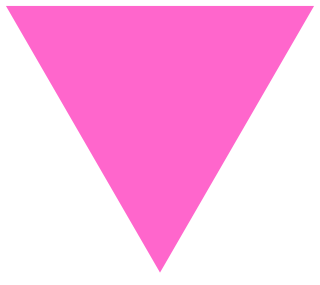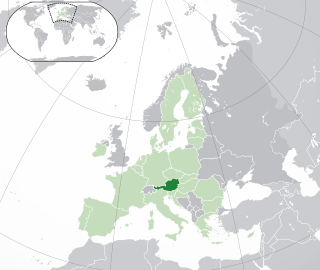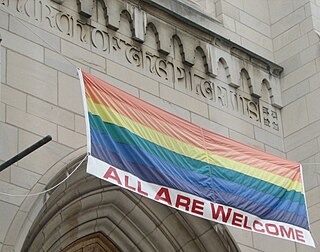
Lesbian, gay, bisexual, and transgender (LGBT) movements are social movements that advocate for LGBT people in society. Although there is not a primary or an overarching central organization that represents all LGBT people and their interests, numerous LGBT rights organizations are active worldwide. The first organization to promote LGBT rights was the Scientific-Humanitarian Committee, founded in 1897 in Berlin.

Before 1933, homosexual acts were illegal in Germany under Paragraph 175 of the German Criminal Code. The law was not consistently enforced, however, and a thriving gay culture existed in major German cities. After the Nazi takeover in 1933, the first homosexual movement's infrastructure of clubs, organizations, and publications was shut down. After the Röhm purge in 1934, persecuting homosexuals became a priority of the Nazi police state. A 1935 revision of Paragraph 175 made it easier to bring criminal charges for homosexual acts, leading to a large increase in arrests and convictions. Persecution peaked in the years prior to World War II and was extended to areas annexed by Germany, including Austria, the Czech lands, and Alsace–Lorraine.

A pink triangle has been a symbol for the LGBT community, initially intended as a badge of shame, but later reclaimed as a positive symbol of self-identity. In Nazi Germany in the 1930s and 1940s, it began as one of the Nazi concentration camp badges, distinguishing those imprisoned because they had been identified by authorities as gay men. In the 1970s, it was revived as a symbol of protest against homophobia, and has since been adopted by the larger LGBT community as a popular symbol of LGBT pride and the LGBT movements and queer liberation movements.

Magnus Hirschfeld was a German physician and sexologist.
This is a list of notable events in the history of LGBT rights that took place in the 20th century before 1949.

Paragraph 175 was a provision of the German Criminal Code from 15 May 1871 to 10 March 1994. It made sexual relations between males a crime, and in early revisions the provision also criminalized bestiality as well as forms of prostitution and underage sexual abuse. All in all, around 140,000 men were convicted under the law. The law had always been controversial and inspired the first homosexual movement, which called for its repeal.

Lesbian, gay, bisexual and transgender (LGBT) rights in Germany rank among the highest in the world and have evolved significantly over the course of the last decades. During the 1920s and the early 1930s, lesbian and gay people in Berlin were generally tolerated by society and many bars and clubs specifically pertaining to gay men were opened. Although same-sex sexual activity between men was already made illegal under Paragraph 175 by the German Empire in 1871, Nazi Germany extended these laws during World War II, which resulted in the persecution and deaths of thousands of homosexual citizens. The Nazi extensions were repealed in 1960 and same-sex sexual activity between men was decriminalized in both East and West Germany in 1968 and 1969, respectively.

Lesbian, gay, bisexual, and transgender (LGBT) rights in Austria have advanced significantly in the 21st century. Both male and female same-sex sexual activity are legal in Austria. Registered partnerships were introduced in 2010, giving same-sex couples some of the rights of marriage. Stepchild adoption was legalised in 2013, while full joint adoption was legalised by the Constitutional Court of Austria in January 2015. On 5 December 2017, the Austrian Constitutional Court decided to legalise same-sex marriage, and the ruling went into effect on 1 January 2019.

Gay-friendly or LGBT-friendly places, policies, people, or institutions are those that are open and welcoming to gay or LGBT people. They typically aim to create an environment that is supportive, respectful, and non-judgmental towards the LGBT community. The term "gay-friendly" originated in the late 20th century in North America, as a byproduct of a gradual implementation of gay rights, greater acceptance of LGBT people in society, and the recognition of LGBT people as a distinct consumer group for businesses.

The Scientific-Humanitarian Committee was founded by Magnus Hirschfeld in Berlin in May 1897, to campaign for social recognition of lesbian, gay, bisexual and transgender people, and against their legal persecution. It was the first LGBT rights organization in history. The motto of the organization was "Per scientiam ad justitiam", and the committee included representatives from various professions. The committee's membership peaked at about 700 people. In 1929, Kurt Hiller took over as chairman of the group from Hirschfeld. At its peak, the WhK had branches in approximately 25 cities in Germany, Austria and the Netherlands.
This is a list of notable events in the history of LGBT rights that took place in the 1960s.

This is a list of important events relating to the LGBT community from 1801 to 1900. The earliest published studies of lesbian activity were written in the early 19th century.
Communist attitudes towards LGBT rights have evolved radically in the 21st century. In the 19th and 20th century, communist parties and Marxist–Leninist states varied on LGBT rights; some Western parties were among the first political parties to support LGBT rights, while others, especially the Soviet Union and its Eastern Bloc, harshly persecuted people of the LGBT community.
President Dwight D. Eisenhower issued Executive Order 10450 on April 27, 1953. Effective May 27, 1953, it revoked President Truman's Executive Order 9835 of 1947, and dismantled its Loyalty Review Board program. Instead, it charged the heads of federal agencies and the Civil Service Commission, supported by the Federal Bureau of Investigation (FBI), with the task of investigating federal employees to determine whether they posed security risks. It expanded the definitions and conditions used to make such determinations. The order contributed to the ongoing Lavender scare of the mid-1950s, barring thousands of lesbian and gay applicants from government jobs.
This is a list of events in lesbian, gay, bisexual and transgender (LGBT) history in Germany.
Rudolf Klimmer was a German psychologist and sexologist who was an early gay activist, most notable for his work in the German Democratic Republic.
Ortwin Passon is a German gay, HIV/AIDS and human rights activist.
The following is a timeline of lesbian, gay, bisexual, and transgender (LGBT) history in the 20th century.
The Frankfurt Homosexual Trials were a series of criminal trials in Frankfurt that took place in 1950 and 1951. Criminal proceedings were initiated against over 200 people during the trials, which began a wave of persecution against homosexuals across Germany. The trials marked the end of the relative restraint exercised by the judiciary in criminalizing homosexuality after the End of World War II in Europe.

The first homosexual movement thrived in Germany from the late nineteenth century until 1933. The movement began in Germany because of a confluence of factors, including the criminalization of sex between men and the country's relatively lax censorship. German writers in the mid-nineteenth century coined the word homosexual and criticized its criminalization. In 1897, Magnus Hirschfeld founded the world's first homosexual organization, the Scientific-Humanitarian Committee, whose aim was to use science to improve public tolerance of homosexuality and repeal Paragraph 175. During the German Empire, the movement was restricted to an educated elite, but it greatly expanded in the aftermath of World War I and the German Revolution.











